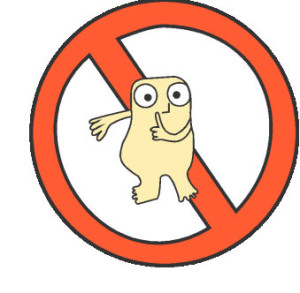 Nobody knows the importance of words better than a writer. After all, words are the tools I work with. Visual media is all well and good, but words get inside your brain and paint pictures only you can see. And if I want you to see basically the same thing I’m seeing, I’d better be aware of the words I’m using.
Nobody knows the importance of words better than a writer. After all, words are the tools I work with. Visual media is all well and good, but words get inside your brain and paint pictures only you can see. And if I want you to see basically the same thing I’m seeing, I’d better be aware of the words I’m using.
I believe with all of my heart that words are powerful. They can be powerful in a good way, or powerful in a bad way. That’s because words are basically symbols for thoughts.
Pure thought has no shape or substance. To give a thought meaning, to be able to express that thought to another person, or even to be able to understand it ourselves, we have to make that thought into a story. We have to change thoughts into symbols we can assimilate, and then, maybe, communicate.
There are some words that are particularly powerful. One of those words is “can’t”. Sometimes that’s a good thing. For example…
“I can’t jump naked off that 400 foot cliff onto jagged rocks without dying”
“I can’t stand in front of a tractor trailer going 70 mph without being hit. And dying.”
“I can’t punch a police officer without going to jail.”
“Can’t” used this way forces you to recognize consequences. You can’t do something without something else happening.
“Can’t” also helps define our abilities. If I tell you “I can’t run fast”, trust me that this is the truth. I really can’t run fast. My body is not capable of running fast. If I tell you “I can’t pay cash for a Mazarati,” this is also true. I don’t have that capability.
But “can’t” might also be used in ways that are dangerous, especially when we use it in an internal monologue. That’s because “can’t” is essentially a word of limitations. It defines boundaries. Sometimes that’s good, such as when we are contemplating jumping naked off a cliff onto jagged rocks. But sometimes it’s not very helpful, or true.
For example, if I say “I can’t clean up my bedroom,” that is not a true statement. Of course I can clean up my bedroom. What I am really saying is “I choose not to spend the little free time I have cleaning up my bedroom” or “I don’t want to clean up my bedroom”. But I CAN clean up my bedroom if I want to clean up my bedroom. There are no real limitations to my ability to clean up my bedroom.
If I say “I can’t write,” this is also false. I obviously CAN write. I’m writing this. What I’m saying is “I’m not sure that I can write something good” or “I don’t know what to write”. But I CAN write.
In these instances, “can’t” is being used as shorthand, but it can also be dangerous if the power of the word is turned against us, especially in our own thoughts.
Consider these statements-
“I can’t write another book”
“I can’t resist cookies.”
“I can’t clean out my closet.”
“I can’t get ahead.”
“I can’t save money.”
“I can’t win.”
Used in this way, “can’t” has turned us into a victim. We are powerless in the face of the tasks and concepts expressed. We are limiting ourselves. We “can’t” do it.
And yet, of course, in many cases when we tell ourselves we “can’t” do it, we really can. Of course we can. It may not be wise. It may not be a suggestion that we should follow at the moment, but we CAN do it.
Look at what happens if we exchange word “I can’t” for the phrase “it’s not wise to”
“I can’t jump naked off a cliff onto jagged rocks”
“It’s not wise to jump naked off a cliff onto jagged rocks.”
This is a true statement. It’s not wise to jump naked off a cliff onto jagged rocks.
“I can’t resist cookies.”
“It’s not wise to resist cookies”
Um, no. Sometimes (such as when you are a diabetic writer) it IS wise to resist cookies. I CAN resist cookies. I just choose not to resist cookies sometimes.
See? Although the decision not to resist cookies is (for me) unwise, by acknowledging that I’ve made a decision I take back power in the situation. I CAN resist cookies, but I choose NOT to resist cookies. That statement is an acknowledgment of my choice, not blaming a false limitation and making myself a victim to what I can and can’t do.
Of course, it also means that my actions are my responsibility. I have made the choice.
And that is the biggest danger of using “can’t” in our internal thoughts. If we think “can’t”, we could be avoiding responsibility for our actions.
“I can’t write another book” means it’s not my fault. “I choose not to write another book because I’d rather fat-ass and play video games” means that it is my decision, and my responsibility. Or “I feel inadequate about writing another book because I’m afraid I’ll never be able to do it again” means I have to face up to my fears. Or “Writing books is hard and I don’t know if it will turn out any good” means that I have to struggle to persevere or decide not to struggle and persevere.
A lot of times, “can’t” is a heck of a lot easier.
So, what is the point of this whole thing? For me, it’s about taking the first step forward. There are still many areas in my life where I feel helpless, even though I actually have all the power. My spare bedroom and my closet intimidate me because I don’t see how I can get them organized. I “can’t” do it.
And yet, I can.
And I actually am, by doing a little bit at a time. As I move forward, I see that I “can” because I “am.”
Maybe that’s what I’m trying to say here. If you do it, you’ll see that you can do it. You still have to think about what you’re doing and consider the consequences – the word “can’t” exists for a reason. But if you haven’t done the things you’ve wanted to do for days or years, or for your whole life, because you’ve think you “can’t”, take another look, and take action. Maybe you’ll find out that you “can” after all.
“Can’t” is a powerful word. Don’t use it against yourself. I’ll try to do the same.







Speak Your Mind